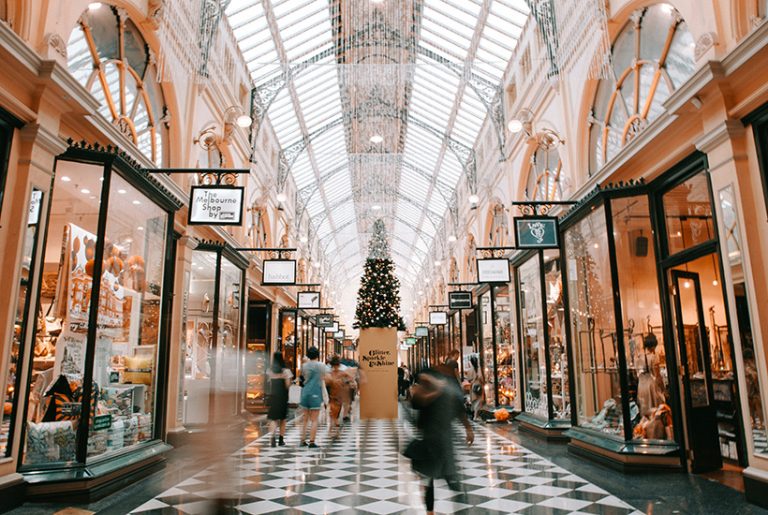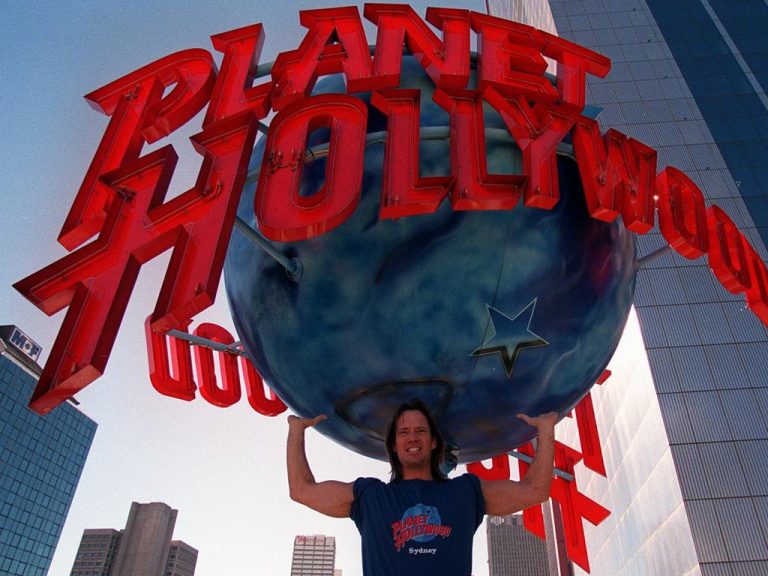Empty shops and fewer people: How do we save our struggling high streets?
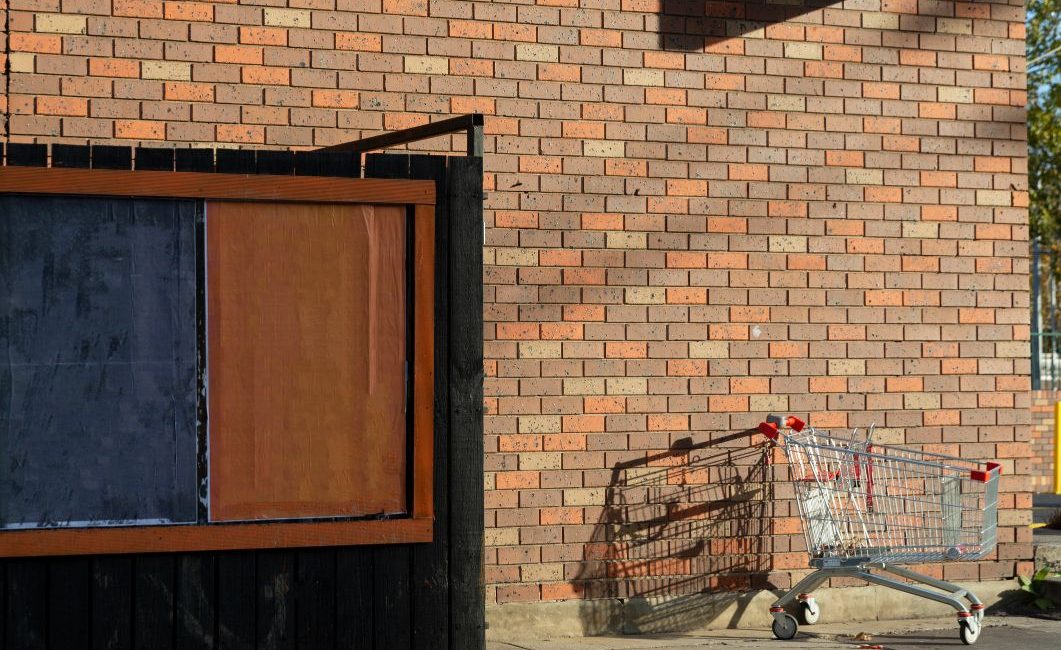
Some of Sydney’s famed high streets have seen better days, with countless ‘for lease’ signs at the fronts of empty shops replacing once-vibrant local retailers.
Community hubs like Darling Street in Balmain, Norton Street in Leichhardt, and King Street in Newtown have been plagued by rising closures and extended vacancies over recent years.
A combination of factors can be blamed, from the popularity and convenience of mega shopping centres to increasingly expensive parking, a lack of public transport, and the acceleration of e-commerce.
When shops remain vacant, people go elsewhere, consumer spend decreases, more shops shut, and there are fewer jobs, experts say.
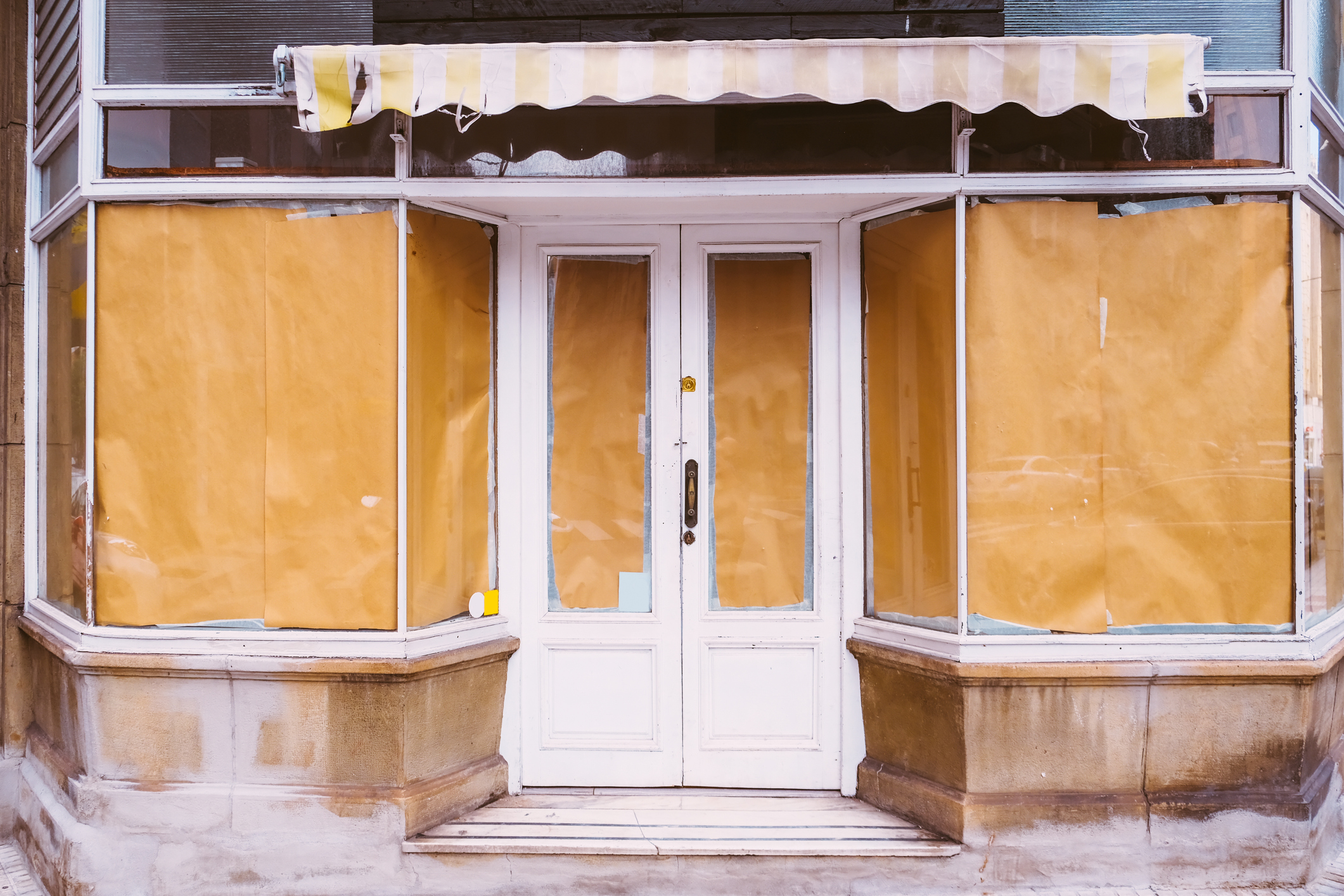
A range of market factors in recent years have put pressure on once-vibrant high streets. Picture: Getty
Property values may even start to decline, which can discourage broader investment in the area.
“Untenanted properties have a detrimental impact on the whole local economy and create over time a sense of decline,” said Sydney’s Inner West Council mayor Darcy Byrne, who added some landlords are happy to keep their properties untenanted for years.
“There are four properties on Norton Street that have remained untenanted for well over half a decade.
“I can only assume it’s because the owners don’t have a mortgage and are able to use those properties as a tax write-off, which shows you that the system has perverse incentives.
“And that is a substantial part of the problem in lots of places across Sydney and Australia.”
Retailer Judith Treanor blames the vacancies on inner-city landlords seeking high weekly rent and long lease terms.
Ms Treanor said she offered “a reasonable amount of rent” for a summer fashion outlet on Victoria Road in Chatswood last year but was knocked back.
“The shops have remained empty since – it makes absolutely no sense,” she said.
“There’s a vast disconnect between what landlords expect in terms of rent and duration of lease, and what small businesses can afford to commit to, when they have to take into account staff, stock and other expenses.”
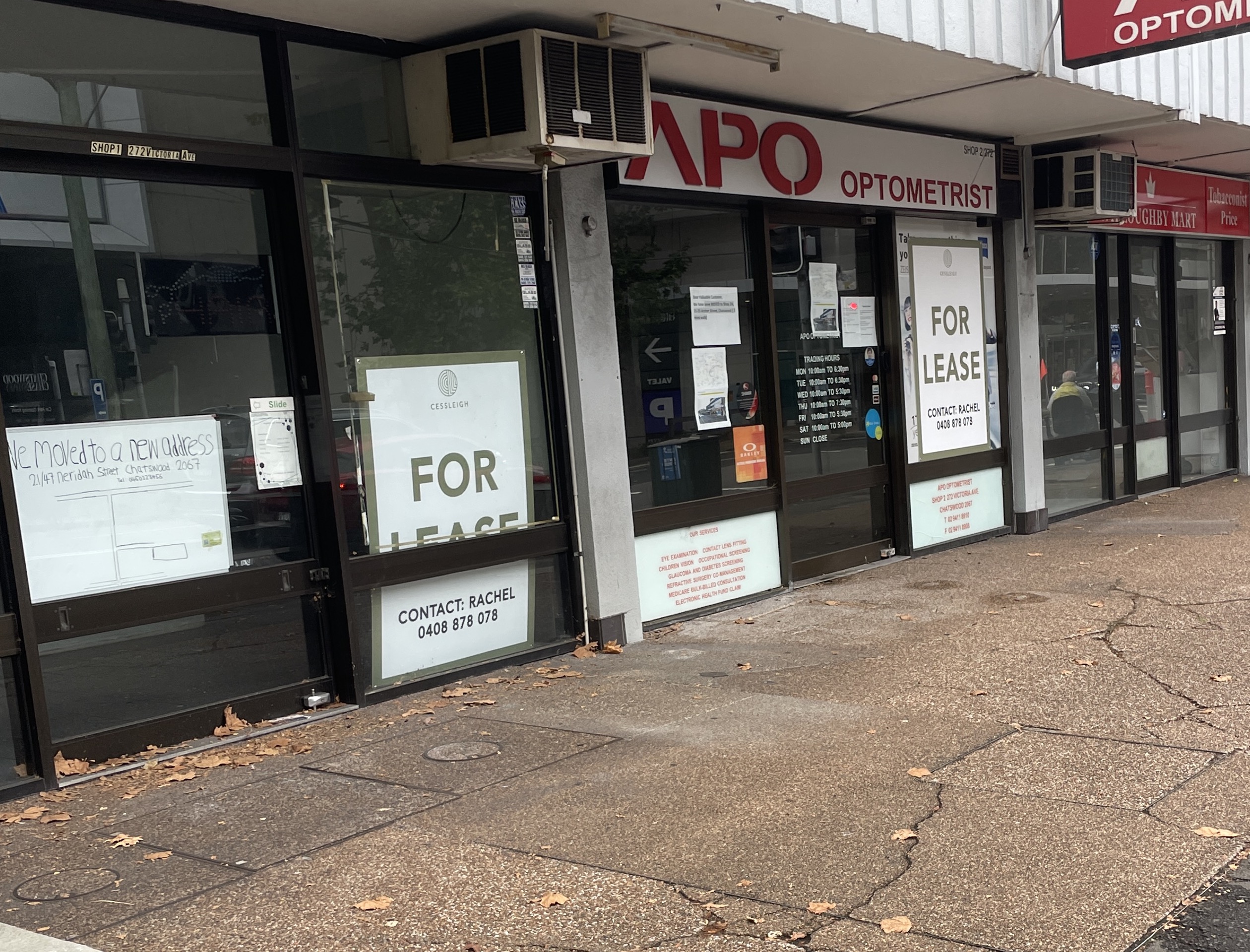
Scenes like this are common across Sydney. Picture: Judith Treanor
Chain stores are the only tenants happy to sign long-term leases, which is why they can take over high streets that were once full of independent stores, she added.
Calls for an empty property tax
Mayor Byrne has called for local governments to reduce rates for main street landlords who keep their properties tenanted – and increase rates for those who keep them empty.
“It would be revenue neutral,” he said. “It’s about giving landlords an incentive to do the right thing.”
A similar policy has been rolled out in Victoria in relation to residential property in Melbourne’s inner and middle suburbs.
Since 2018, the Vacant Residential Property Tax has been charged to owners whose properties sit unoccupied for more than six months.
Ms Treanor agrees with the idea of an empty property tax.
“It’s high time there are repercussions for landlords who are content for their properties to sit empty for more than a year.
“It would also generate additional revenue for state governments and councils to invest in community development projects, assist small business and so on.”
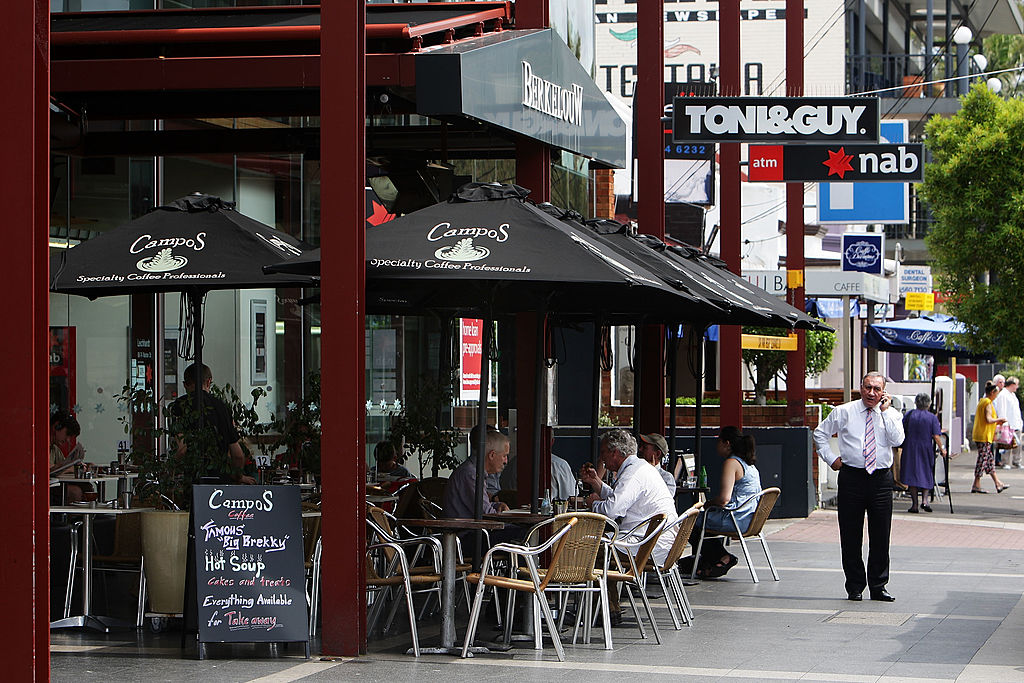
There are calls for urgent action to restore and protect high streets. Picture: Getty
But Property Council of Australia acting executive director Adina Cirson said taxes that penalise landlords, who are still feeling the strain of the Covid pandemic, as well as higher cost of living and inflationary pressures, are not the answer.
“Building owners have been working tirelessly to support the need for relief and flexibility in leasing terms [with] shops, cafes and small retailers and restaurants struggling to meet the rising cost of doing business,” Ms Cirson said.
Creative use of empty spaces
Ms Treanor suggests tax breaks and grants to incentivise landlords to support new tenancies through flexible lease terms may also work, as well as interest-free loans or grants from councils to help retailers renovate less desirable spaces.
She founded The Pop-Up Collective, a growing movement of small business owners that aims to encourage landlords and agents to see the benefits of pop-up shops, curated events and concept stores.
“A stylish looking pop up store is a no brainer. It’s akin to styling a house for sale — turning an empty premises into a more attractive proposition for a longer-term tenant. Or even better, the pop-up tenant may do so well they decide to stay.
“Pop ups create an ever-changing environment that draws in visitors and boosts local business.”
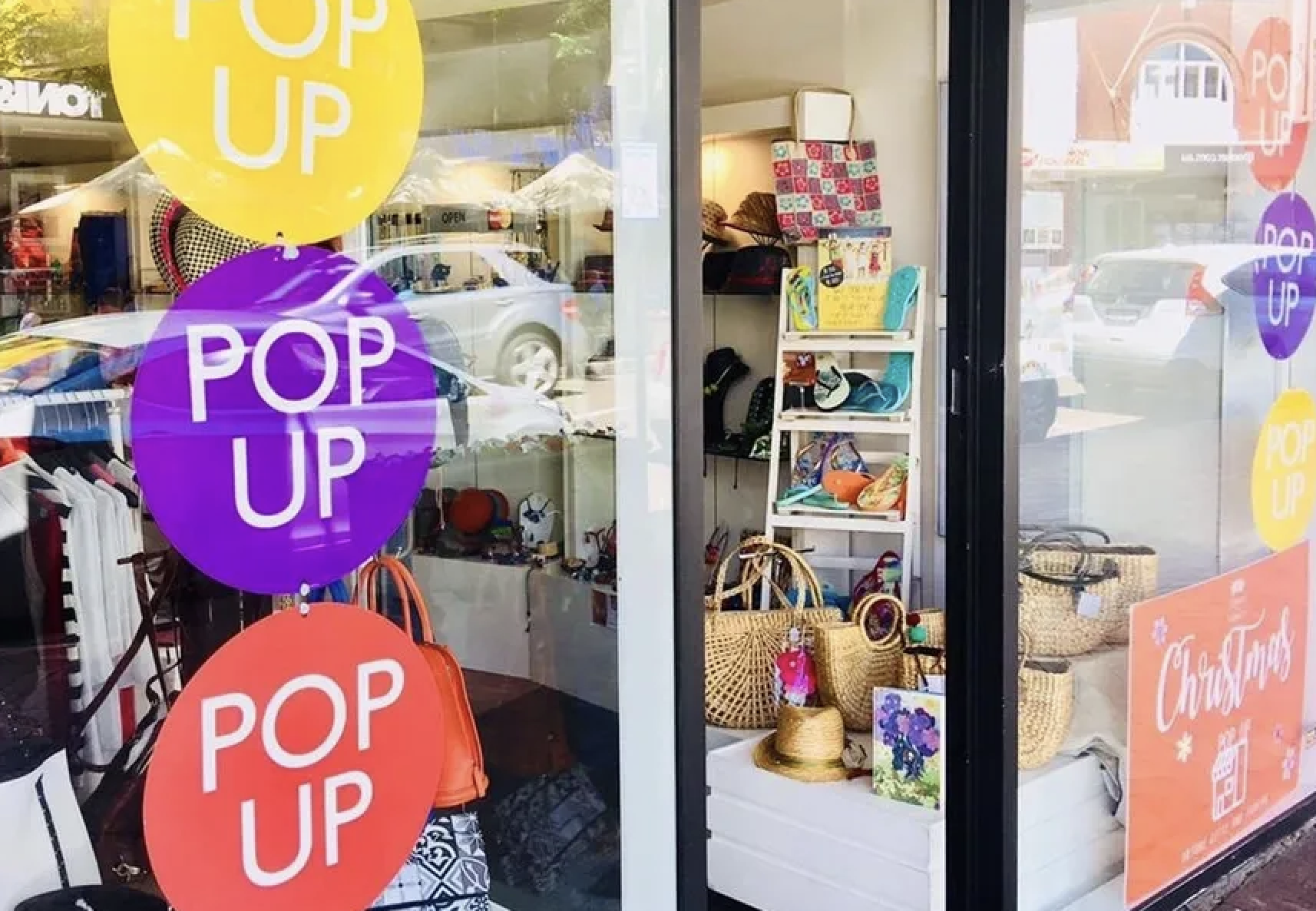
Empty shops can be repurposed in a range of creative ways. Picture: The Pop-Up Collective
A similar initiative on a larger scale, Renew Newcastle has transformed the port city’s CBD in recent years by supporting the short-term reuse of empty retail outlets for galleries, studios and shops, with the project partly funded by the state government.
Mayor Byrne has sought to recreate the model in Leichhardt’s Norton Street.
The council found local creatives to rent empty stores on 28-day licence agreements in an attempt to increase foot traffic.
But the program wasn’t a success.
“Even though there was no cost to landlords, there was a lack of cooperation from them,” he said.
Working together to revitalise our neighbourhoods
Mayor Byrne is about to inject a $7.5 million main streets revitalisation fund into five of the inner west’s main streets in a bid to revitalise them with street furniture, public art, pedestrianisation and cultural activities.
To access the funding, local chambers of commerce, businesses, landlords, artists, and community organisations must work together to submit a plan that shows how they would encourage pedestrian traffic and increase occupancy rates.
He believes collaboration is the only way to stop main streets from declining.
“If we can create the right incentives, it’s in everyone’s best interest to keep their properties tenanted.”
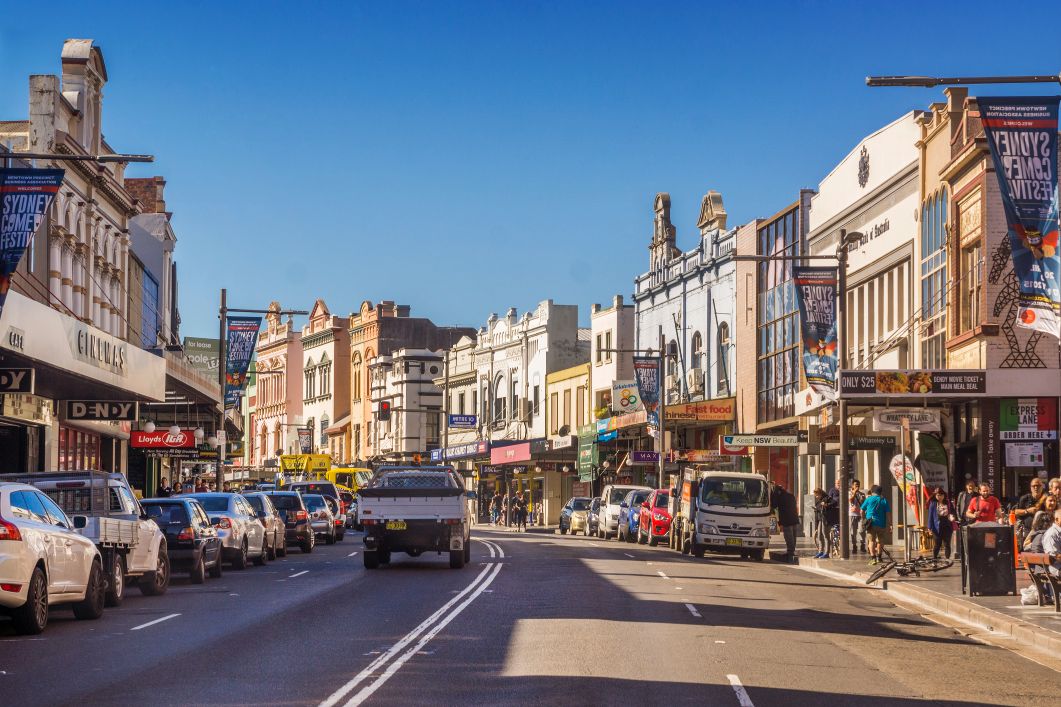
There’s a lot that can be done to save high streets, experts say, but it required cooperation and collaboration. Picture: Getty
Ms Cirson agrees high street activation is a joint effort, but said the onus is on councils.
“Our suggestion is councils look toward public domain upgrades and rezoning if they want to improve the performance of local neighbourhood centres.”
Ms Treanor said councils should invest in public spaces, create pedestrian-friendly streets and host community events such as festivals and markets — and work with businesses to market these events.
Extended business hours and night-time activity is crucial in getting people to visit their main streets during evenings and weekends, she added, and it’s up to communities to make sure we support our hubs.
“We want increased demand for local businesses, in turn fostering a thriving, much needed economy.”


